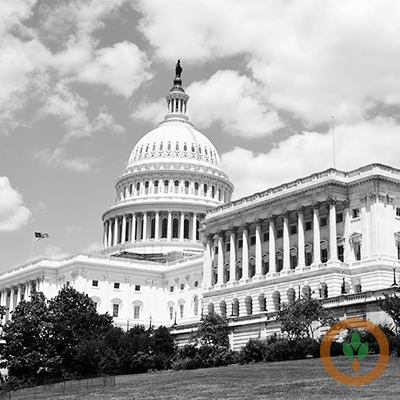Inside D.C.
For Trump, trade wins power U.S. economic engine

When this week ends, we will have, for the most part, put behind us the ordeal of impeachment rhetoric, accepting the split decision expected from the onset. We will also get to ignore the chaos of the Iowa caucuses leaving that headache to the Iowa pols. That leaves us with the theatrics and pettiness of this week’s State of the Union address. For agriculture, the gist of the president’s speech is Trump’s bragging rights over his generally successful efforts to render extinct any all trade deficits no matter the overseas trading partner.
With a U.S.-Japan “mini” trade deal in force, with fingers cross the “phase one” China tariff détente will deliver amped U.S. ag sales once coronavirus is in hand, with the U.S.-Mexico-Canada Agreement (USMCA) finally signed last week, with India likely to agree to “modest” market access increases for U.S. agriculture, with Trump eyeing new bilaterals with Brazil and a handful of southeast Asian nations, and the president of Kenya in town this week hoping to get U.S. trade blessing, it’s obvious White House agriculture policy is all about targeting trade.
In that context, all eyes now turn to the 27-nation European Union (EU), and whether the U.S. can pull off, as the president asserts, a major bilateral trade agreement that includes agriculture. President Obama failed to cross the treaty finish line in his race to get a U.S.-EU free trade agreement, and it’s fair to say this White House is currently at loggerheads with Europe over policy and politics. The biggest headache is the World Trade Organization (WTO) tug of war over alleged government sweetheart loans to Airbus and Boeing. So far, the U.S. is in the driver’s seat, with the WTO blessing prospective U.S. tariffs on some of the EU’s most lucrative exports, including wines and cheeses.
Recall that in mid-2018, Trump and then-European Commission (EC) Jean-Claude Juncker stood on the White House lawn, proudly proclaiming the two superpowers would forge a trade deal. That euphoria quickly evaporated, replaced by a very public dispute over whether agriculture is on the agenda. The EU says “nope,” the talks are limited, and ag issues are too complicated to shoehorn into a quick treaty; the U.S. says there won’t be any deal without ag concessions.
Last week Trump met with new EC President Ursula von der Leyen on the sidelines of the annual World Economic Forum in Davos, Switzerland. She called the conversation “great;” Trump said the EU has “no choice” but to cut his kind of deal else he manifests Europe’s worst trade nightmare: The U.S. whacks EU car/car part exports to the U.S. with very heavy tariffs. This is the same sword the president dangled over Japan, Canada, Mexico and others.
The EC’s von der Leyen is eager to calm EU-U.S. trade waters to protect the continent’s multibillion-dollar annual auto exports. She also wants to avoid a political backlash by her consumers fearing she’s willing to jeopardize EU food safety by knuckling under to Trump’s tariff threats. Nevertheless, she and her lieutenants reportedly are looking for ways to talk agriculture on U.S. terms outside a formal chapter in any prospective formal treaty.
Agriculture Secretary Sonny Perdue, on a European grand tour last week, told EU ag ministers in Rome that on the list of U.S. priorities, tariffs are less important than changes to EU food standards, including its limits or bans blocking chlorine-washed U.S. poultry and hormones in beef. It’s the erasure of these non-tariff barriers the U.S. is insisting upon, and the list also includes U.S. dairy’s nightmare, namely EU demands on geographic labeling indicators, a European policy holding only historically recognized cities/countries/region of production can use certain product names in labeling, e.g. Parma or Danish ham, parmesan, edam or gouda cheeses, etc.
France, Austria, the Netherlands and Germany insist the EU refuse any ag negotiations, fearing concessions over tariffs, food standards and biotechnology would be damning to markets and their politicians’ reelection chances.
Perdue, who nodded proudly during the State of the Union speech when the president’s trade victories were enumerated, is at least publicly optimistic a “substantive” U.S.-EU deal is possible “within weeks, not months.”

Add Comment